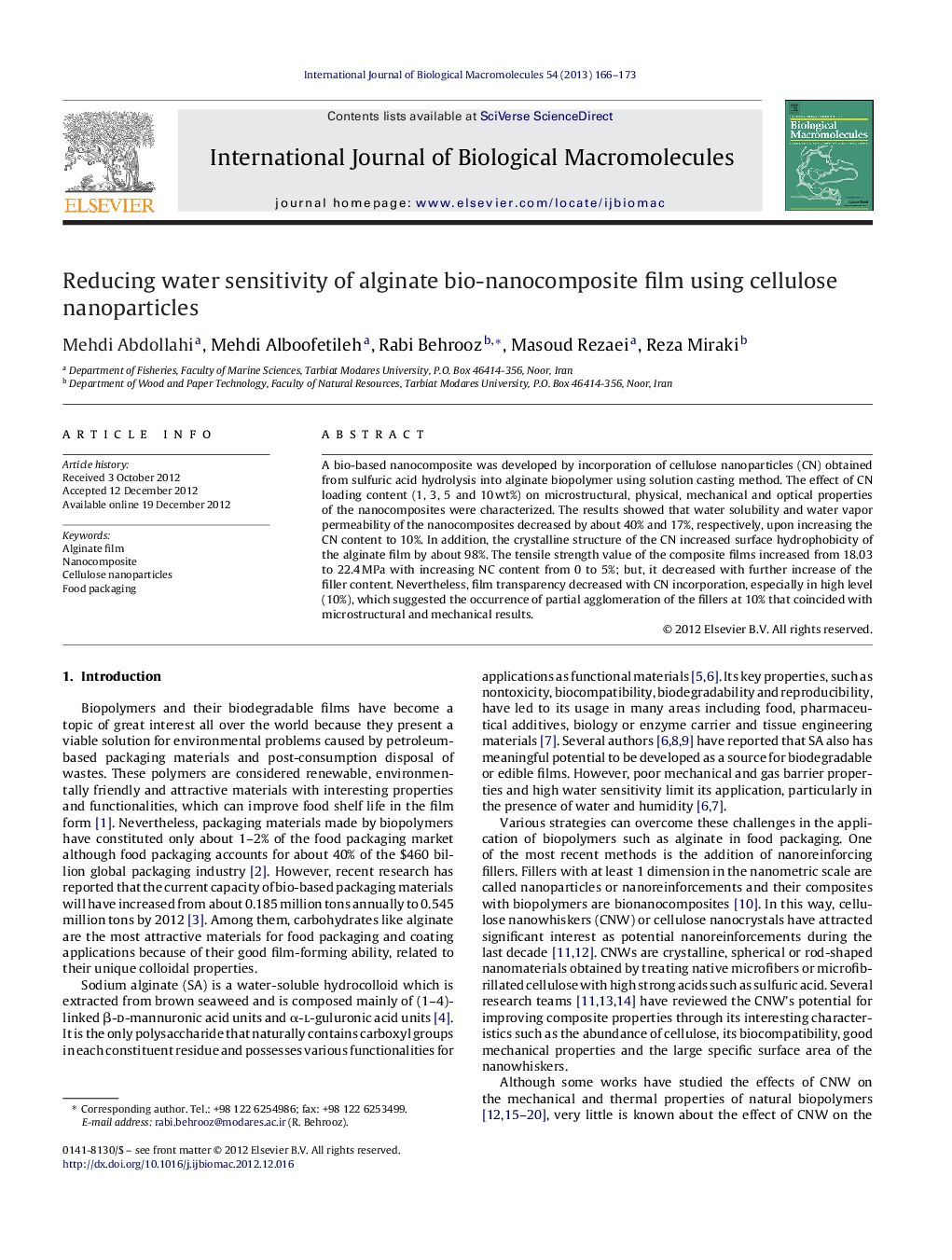| Article ID | Journal | Published Year | Pages | File Type |
|---|---|---|---|---|
| 8333946 | International Journal of Biological Macromolecules | 2013 | 8 Pages |
Abstract
A bio-based nanocomposite was developed by incorporation of cellulose nanoparticles (CN) obtained from sulfuric acid hydrolysis into alginate biopolymer using solution casting method. The effect of CN loading content (1, 3, 5 and 10Â wt%) on microstructural, physical, mechanical and optical properties of the nanocomposites were characterized. The results showed that water solubility and water vapor permeability of the nanocomposites decreased by about 40% and 17%, respectively, upon increasing the CN content to 10%. In addition, the crystalline structure of the CN increased surface hydrophobicity of the alginate film by about 98%. The tensile strength value of the composite films increased from 18.03 to 22.4Â MPa with increasing NC content from 0 to 5%; but, it decreased with further increase of the filler content. Nevertheless, film transparency decreased with CN incorporation, especially in high level (10%), which suggested the occurrence of partial agglomeration of the fillers at 10% that coincided with microstructural and mechanical results.
Related Topics
Life Sciences
Biochemistry, Genetics and Molecular Biology
Biochemistry
Authors
Mehdi Abdollahi, Mehdi Alboofetileh, Rabi Behrooz, Masoud Rezaei, Reza Miraki,
